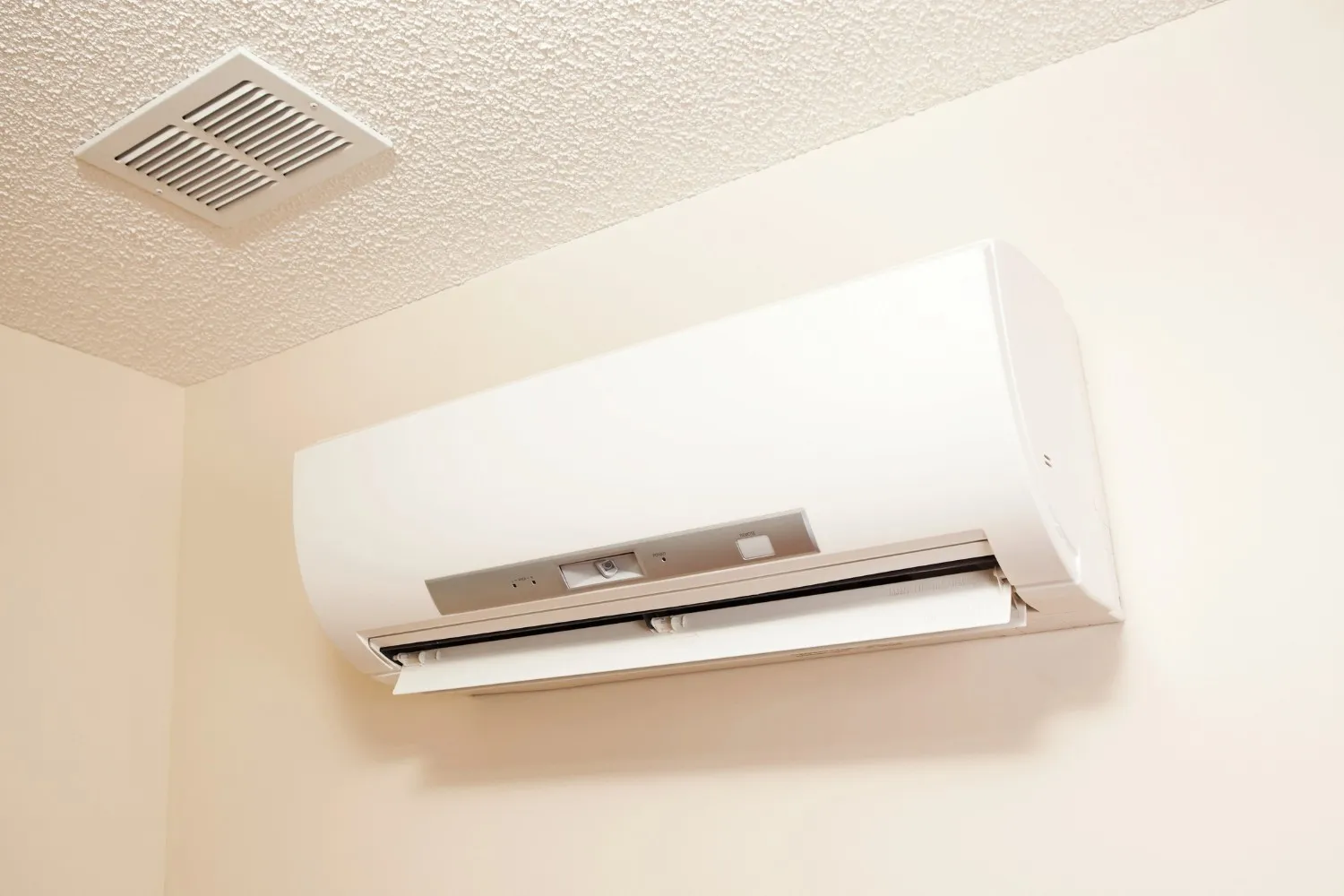Mini Split Installation in South Fayette, PA

Why Professional Installation Matters
DIY or big-box purchases often leave gaps in performance, incomplete refrigerant charging and voided warranties. Professional installers carry industry certifications, adhere to manufacturer guidelines and secure the proper permits for Allegheny County. That level of expertise translates into:
- Accurate load calculations (Manual J) to match system capacity with room sizes and local climate demands
- Factory-approved mounting techniques that preserve structural integrity and exterior aesthetics
- Precise refrigerant charging and leak-testing for maximum efficiency and refrigerant compliance
- Electrical and safety inspections to protect against overcurrent, arc faults and code violations

Benefits of a Ductless Mini-Split System
- Zone-by-zone comfort: Independently control temperatures in living rooms, bedrooms, home offices and additions without over-cooling or overheating unoccupied spaces.
- Energy savings: High SEER ratings and inverter-driven compressors modulate output to match exact load requirements, reducing startup surge and runtime.
- Improved indoor air quality: Multi-stage filtration options—including washable filters, HEPA and carbon modules—help capture pollen, dust and odors.
- Quiet operation: Interior units mounted high on the wall or recessed into ceiling plates can operate below 25 dB, comparable to a whisper.
- Compact outdoor footprint: Small condenser modules require minimal ground or slab space, ideal for limited-landscaping properties.
Comprehensive Site Assessment & System Sizing
Every South Fayette installation begins with a free on-site evaluation:
- Review of architectural layout, window orientation and insulation levels.
- Room-by-room Manual J calculations to determine heating and cooling loads under Pittsburgh’s hot-humid summers and occasional subzero winters.
- Identification of optimal indoor-unit locations—balancing airflow patterns, furniture placement and aesthetic considerations.
- Selection of outdoor-unit siting options to minimize noise toward neighboring properties and comply with setback requirements.
- Discussion of multi-zone configurations or single-zone installations based on budget, comfort goals and equipment footprint.
Step-by-Step Installation Process
- Indoor-Unit Mounting: Level wall brackets are anchored to load-bearing framing or reinforced plywood backers. Drain pans are installed with gravity-drain lines or condensate pumps where needed.
- Refrigerant Line-Set and Wiring: A concealed 3-inch bore is drilled through exterior walls. Line-sets (pre-insulated copper tubing) and UL-rated electrical cabling are routed through protective sleeves and weather-proofed flashing.
- Outdoor-Unit Placement: Concrete pads, anti-vibration mounts or wall-hung brackets secure the condenser. Vibration-dampening feet and discharge louvers ensure quiet, code-compliant operation.
- Refrigerant Evacuation and Charging: Certified technicians pull down to manufacturer-specified vacuum levels, perform leak-detect tests, then charge to precise superheat/subcooling tolerances for peak efficiency.
- Electrical Connections and Controls: Branch-circuit wiring, disconnects and ground-fault protection are installed per NEC and Allegheny County codes. Wireless or wired thermostats and remote controllers are configured.
- System Commissioning: Startup sequence includes airflow balancing, temperature differentials, refrigerant checks and sensor calibration. A walkthrough demonstrates controls, filter cleaning and zoned operation to homeowners.
Permits, Inspections & Local Code Compliance
Allegheny County and South Fayette Township require mechanical and electrical permits for mini-split installations. Professional installers:
- Submit permit applications, pay inspection fees and coordinate municipal inspections
- Ensure condenser noise levels meet local ordinance limits (usually 55 dB at property line)
- Provide detailed permit-compliance documentation, including load-calculation reports and as-built wiring diagrams
- Register equipment under statewide refrigerant reporting requirements
Cost Factors, Rebates & Financing
Installation costs vary by system size, number of zones and complexity of mounting locations. Typical single-zone installations range from mid-four to low-five figures, while multi-zone projects may exceed six figures. Cost drivers include:
- Equipment brand, SEER rating and compressor technology
- Length of line-set runs and ease of access to interior/exterior walls
- Upgrades to electrical service panels or dedicated disconnects
- Additional condensate-drain options such as pumps or auxiliary drain pans
South Fayette homeowners may qualify for:
- Federal tax credits for ENERGY STAR®-rated mini-split systems
- Pennsylvania HERS rebates and utility incentives through local providers
- Low-interest financing and equipment leasing plans via financing options


Schedule Service Today!
Contact us to schedule or request an estimate on installation and replacements!


We are here to help. A person on our team will text you back! 🙌





















.avif)


